
Southern Cross Creations
An Australian Woman's Journal
about life in remote, rural
Far North Queensland
25 March 2004
Cairns and FNQ Spinners, Weavers & Fibrecrafters Inc
March Committee Meeting at Lake Eachem
Their prayer is in the work of their hand
and in their craft they hold together the fabric of the world.
(The Book of Sirach)

Members met in the shelter at the edge of the rainforest
next to Lake Eachem on the Atherton Tablelands.
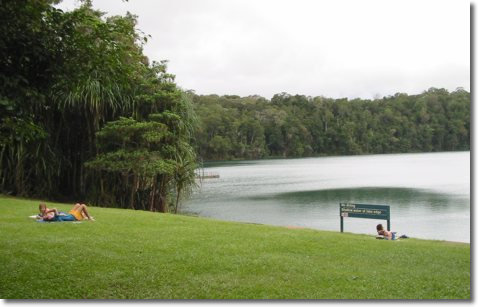
Less than 100 metres away is a good swimming spot at Lake Eachem.
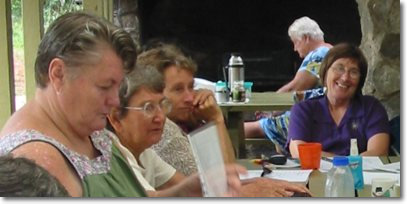
President Christine Shadforth presided over the meeting.
Now I have to be honest - I arrived at the end of the meeting. Sorry! I have to rely on the Fibre Focus Newsletter and more responsible members to keep me informed. After lunch Lyn gave me a welcome lesson in knitting socks on two circular needles. Lyn gets a medal for patience.
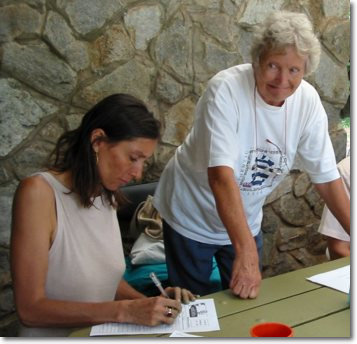
Mieke barely contained her delight as a new spinner from Millaa Millaa became
a member of our group.
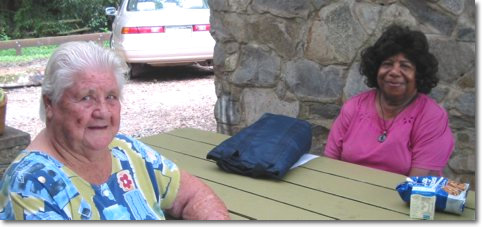
Visitors and members alike enjoyed the day.
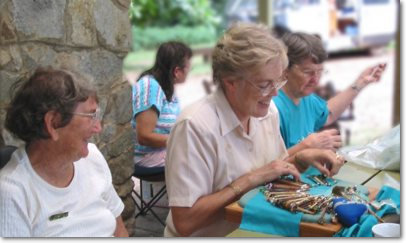
Busy hands and bobbin lace.
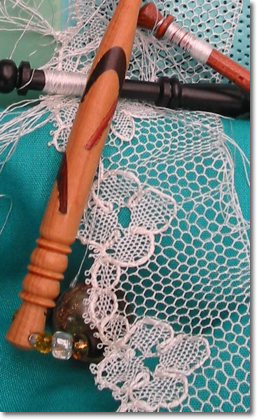
Silk chantilly lace, a work in progress

A citronella candle offered some protection against an astonishing outbreak of sandflies in the aftermath of recent rains.
We shared patterns and information while spinning silk, wool and
alpaca, embroidering, knitting, show and telling, chatting. These are good days,
with no worries about low water levels. Indeed we marvel to hear some places
along the coast received over 1000mm (40 inches) of rain in the past fortnight.
(Jerry and I got 220mm, or almost 10 inches, on the Walsh River.)
Now, leap from Lake Eachem to Gillian's home on the Walsh River
for a photo of her latest handwoven fabric made from handspun yarn.
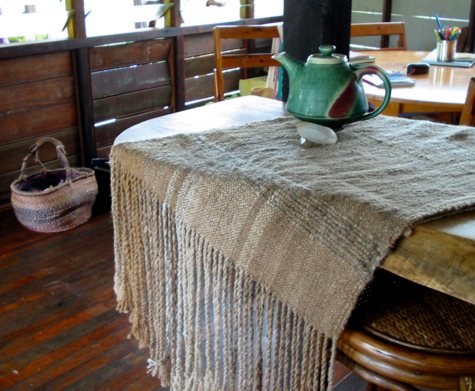
International Women's Day: March 8
Queensland women making a difference
Jude (my neighbour and treasurer of the Walsh River Community Centre) and I attended the celebration offered by the Queensland Office for Women and held at the Cathedral Lodge Restaurant at Lake Tinaroo. Our region has an abundance of women from around the world, all choosing to call Australia home. Like the women born here, we know we live in a special place.
We listened to stories of Queensland women making a difference. Those stories inspired some thoughts on the changing roles for women amid the economic and social stresses we face in Far North Queensland.
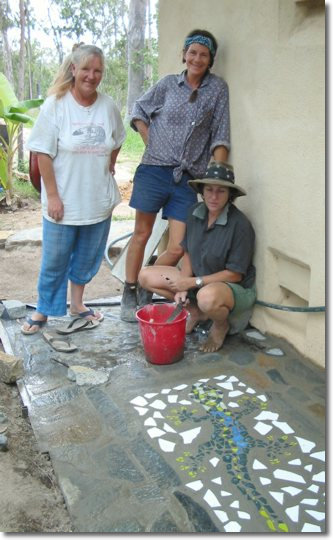
Queensland women making a difference:
Hidden Talents (Trish, Phred and Val) created
a Gecko Mosaic and slate walkway
at the Walsh River Community Centre.
In the last 20 years the Atherton Tablelands experienced the collapse of the tin industry, followed by the timber industry, the tobacco and dairy industries not far behind, and the sugar industry teetering. Depression, youth suicide, eating disorders, deaths from melanomas associated with too much time spent working in the sun and health problems associated with old practices in the use of pesticides, these are issues that take their toll on Tableland families. Add in the unrealistic expectations fed by the media on how a woman should look and act, and the stresses increase on young women already under pressure to find a role for themselves in communities beset with unemployment and rife with disdain for anyone that is "on the dole".
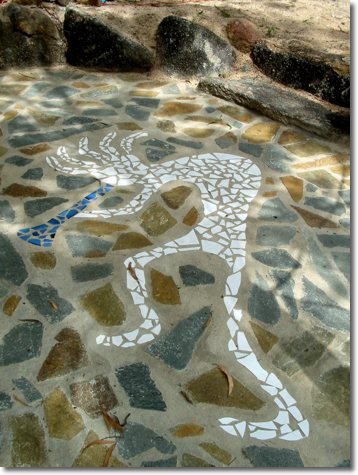
Kokopelli mosaic by Hidden Talents
for the Walsh River Community Centre
(Women Work for the Dole Project - a non-traditional collaboration)
Alongside the disappearance of traditional roles for men as tin miners, timbercutters, dairy farmers, and tobacco farmers - and let's not forget the many women who worked alongside those men - we note the falling birth rate and the implications for the traditional roles for women, as mothers and grandmothers, that is, as nurturers and supporters.
Traditionally, women act as carers. We discern the needs of others. We intuit. We empathise. We network, consult and communicate. These are some of our strengths. How can we use our strengths in the face of immense economic and social changes? How can we tap into unexpressed strengths?
Choices for women expanded in the last 100 years, thanks to the valiant efforts of those who went before. Today's challenges include learning how to keep our families and communities afloat in a riptide of socio-economic change. I believe it is vital that women make their ideas known, that women act on their ideas, that women value themselves and honor their own needs. Not because women know best. But because women have the potential to shift the balance toward moving families and communities into caring ways of life that generate individual fulfillment and community satisfaction.
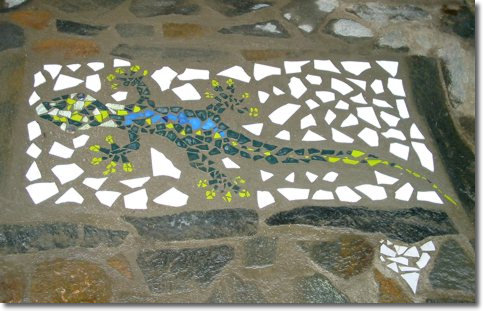
Gecko mosaic by Hidden Talents for the Walsh River Community Centre.